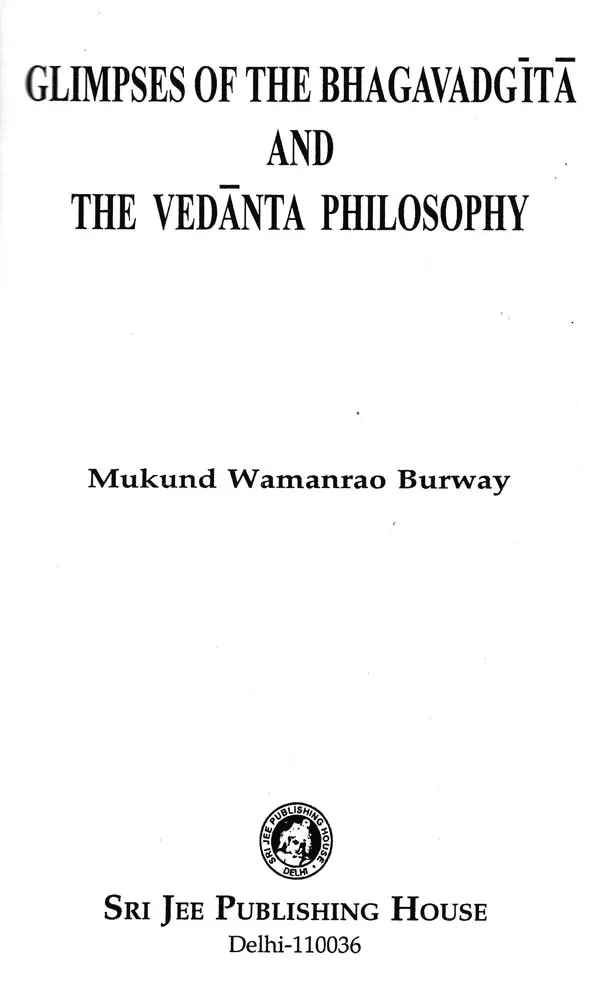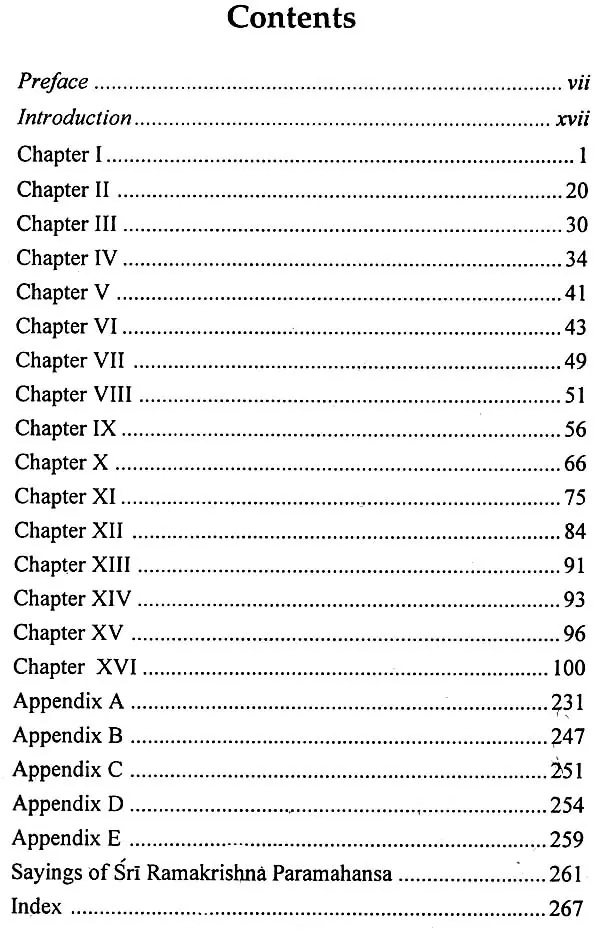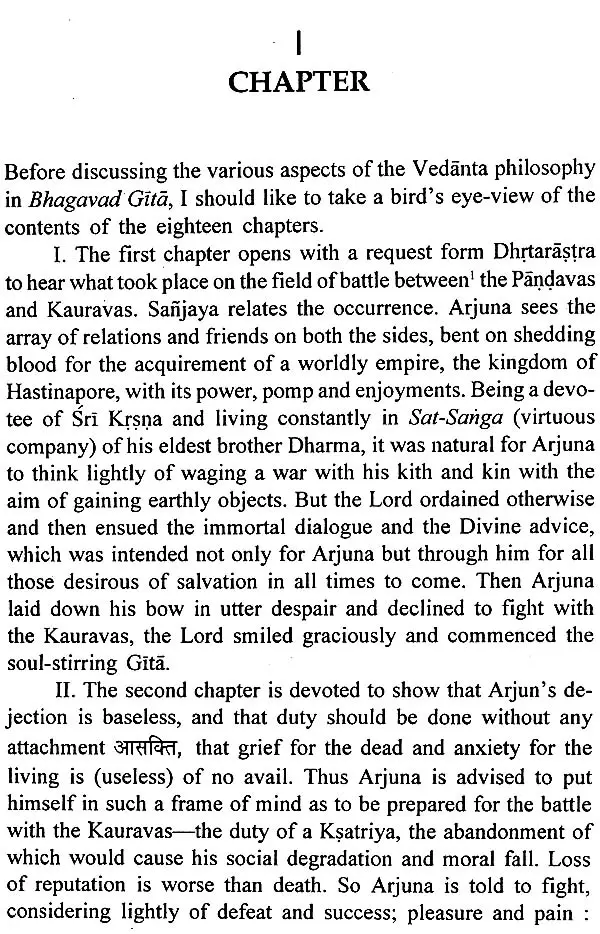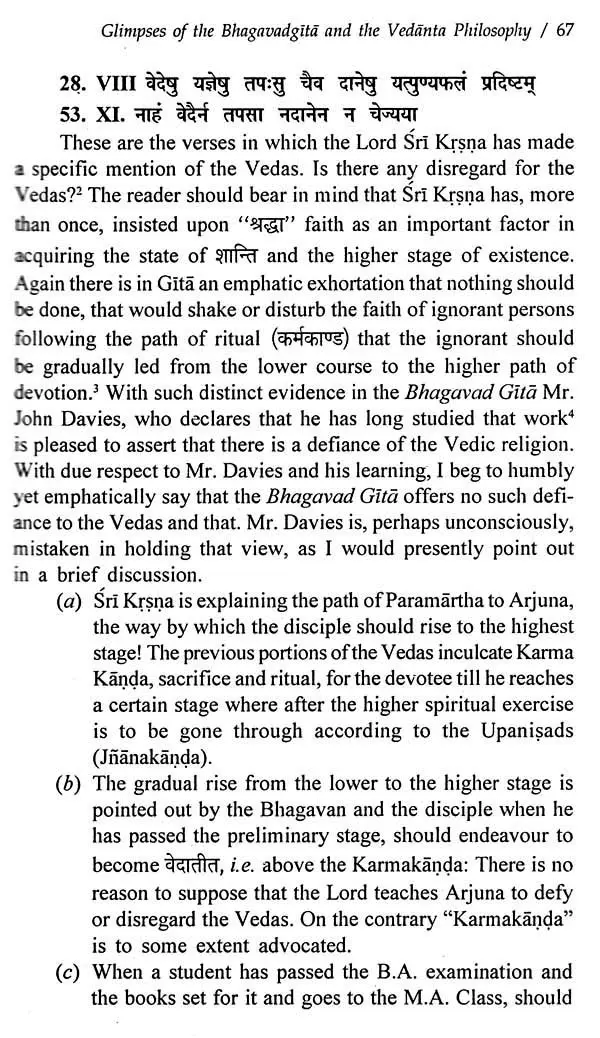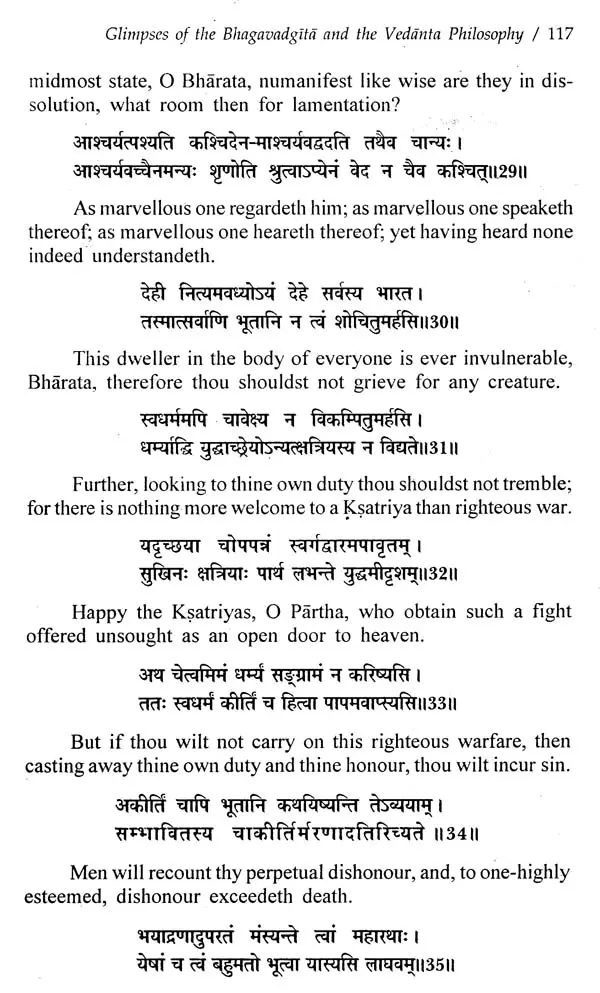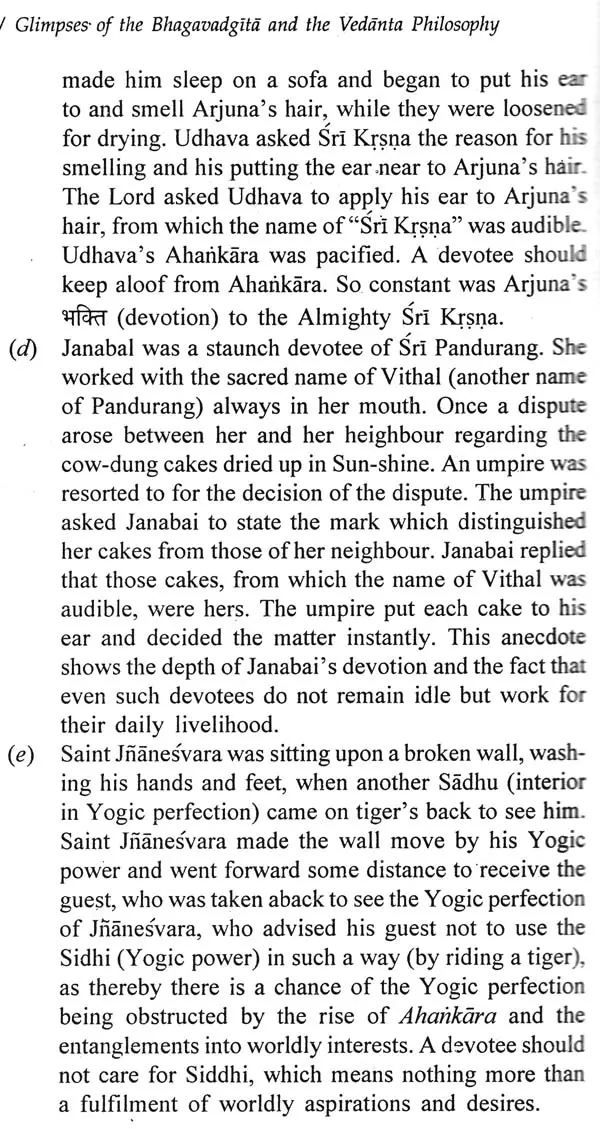About the Book Sri Bhagavad Gita is and would remain, for all time to come, as the greatest exponent of the Advaita philosophy of the Hindus. No effort to put forth strong evidence in support of this statement is necessary. A mere glance at the number of commentaries on Gita, written by illustrious saints of India and Indian scholars to expound the teachings of Sri Krsna in "The Song Celestial", would convince the reader that Gita engaged the attention of every great Hindu teacher and founder of religious sect. Sri Sankaracarya, the venerable advocate of the Vedanta philosophy, Sri Madhvacārya and others, who differed diametrically in their beliefs, voluntarily united in their reverence and admiration for the Gita of Sri Kṛṣṇa. Jain and Buddha scholars pay similar homage to the Divine song. European savants have been equally enthusiastic in their esteem for that immortal advice given to Arjuna and through him to the world by Sri Krsna on the plains of Kurukshetra. Gita is the essence of the Vedas and in importance it is scarcely less.
Preface I owe my study of Bhagavad Gita to my revered father, the late Rao Bahadur Waman Rao Tatya Burway and my revered brother, the late Pandit Ganpatrao Woman Burway who were lifelong students of the Upanişads, the "Divine song", and other sacred works and eagerly and zealously delighted in passing sometime in the company of Saints and saintly persons. Both of them were eminently active officers of the Gwalior State and yet they were equally enthusiastic in their study of the Vedanta philosophy and their whole life was a befitting reply to those who allege that Vedanta teaches idleness.' In 1908 I had begun to write something like an Essay on Bhagavad Gita but the work proceeded at a very slow rate. In the July of 1914, Mr. K.S. Date, B.A., asked me to read a paper on Bhagavad Gita before the Indore Literary Club and I thought I would be failing in my duty if I did not comply with the request. I took up the Essay and finished it in December 1914, by which time, however, the Indore Literary Club became moribund for reasons of which the less said the better. Early in 1915, I was asked by Professor Kanayalal M.A., of the Daly Rajkumar College, Indore, to read the Essay to the Rajkumar’s. A meeting was arranged by the learned Professor and on the 23rd January I read portions of the Essay before the Assembly of the Rajkumar’s. The work was complete and ready for the Press in June 1915, but various causes delayed its publication.
The object of the present treatise is to attempt to remove several misconceptions, misunderstandings, and wrong views which are imposed upon the sublime subject of Vedanta and which I came across during my study of this sublime subject.
Introduction Sri Bhagavad Gita is and would remain, for all time to come, as the greatest exponent of the Advaita philosophy of the Hindus. No effort to put forth strong evidence in support of this statement is necessary. A mere glance at the number of commentaries on Gita, written by illustrious saints of India and Indian scholars. to expound the teachings of Sri Krsna in "The Song Celestial", would convince the reader that Gitä engaged the attention of every great Hindu teacher and founder of religious sect. Sri Sankaracarya, the venerable advocate of the Vedanta philosophy, Sri Madhvacārya and others, who differed diametrically in their beliefs, voluntarily united in their reverence and admiration for the Gita of Sri Krsna. Jain and Buddha scholars pay similar homage to the Divine song. European savants have been equally enthusiastic in their esteem for that immortal advice given to Arjuna and through him to the world by Sri Krsna on the plains of Kurukshetra.' Gita is the essence of the Vedas and in importance it is scarcely less. The Vedanta doctrine has reached its stage of perfection in the Divine advice, imparted to Arjuna at the beginning of the battle between the Kauravas and Pandavas. Sri Krsna's words solved the doubts arising in His disciple's mind and allayed the misgivings that tormented him, when he saw the two forces engaged in the work of mutual destruction. Gita is considered as ref or ref, i.e. the true meaning of the 'Revelations, the sacred Vedas of the Hindus. The weighty words of Sri Krsna were instrumental in serving not only a temporary purpose in persuading Arjuna to prepare for the war and to enlighten him in the path of knowledge but their influence and hold on the human mind is destined to be ever-lasting.
**Contents and Sample Pages**
